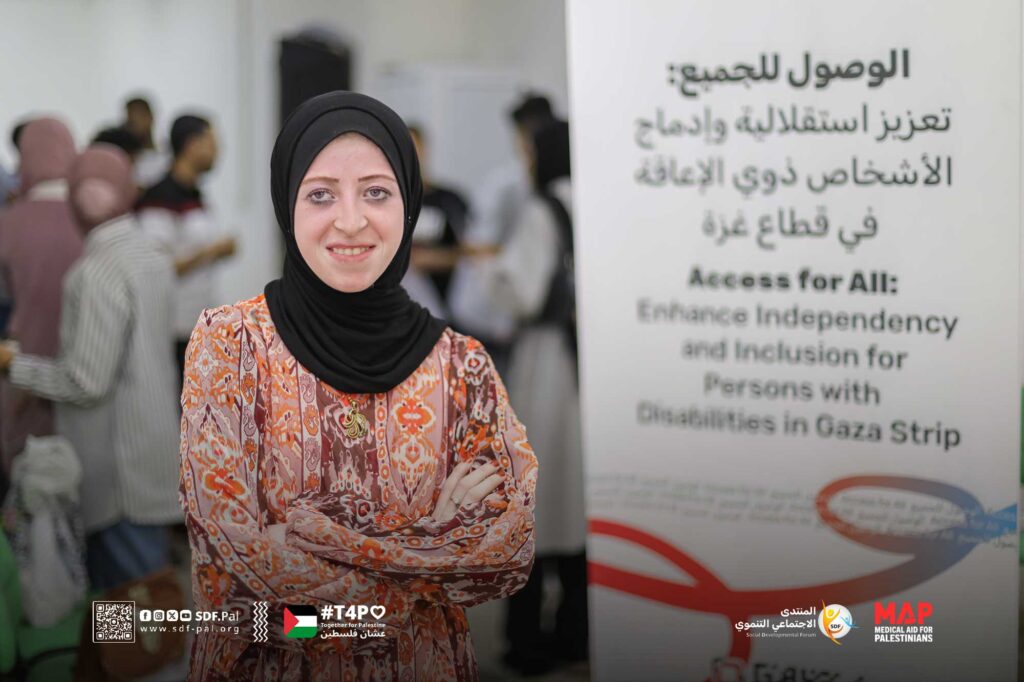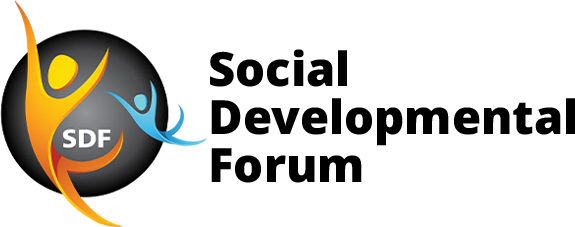Displacement shouldn’t kill our dreams, story of Eman Abu Jarad

I am Eman Nahed Mohammad Abu Jarad. The war deprived us of any means of stability.
This is how Eman started narrating her story. Her words echoed the patience and hope she maintained amid displacement.
Eman was born in 2000 in Beit Hanoun, North Gaza; she is now almost 24 years old. Since the beginning of the genocide, she had been forcibly displaced from Beit Hanoun to Al Nuseirat, then to Rafah, and then to Deir Al Balah, ultimately to Al Rimal neighbourhood in Gaza City, a painful journey.
Being displaced to Deir Al Balah, for instance, in Al Zawayda was the hardest phase, as I had to shelter in a makeshift tent, enduring unbearable conditions. “The tent was very fragile, and the high temperature was inconvenient. I had to use unclean water, which negatively affected my skin. As a person with a visual disability. Being forcibly displaced in a tent left major physical and mental issues, including eye allergies and sinusitis.”
However, Eman didn’t give up. She joined an MA program in special education, challenging her disability and the accessibility barriers. She acknowledges that it is easier said than done, “Sometimes I regret. It’s been very challenging to use my mobile phone to study, which caused more pressure on my eyes and increased my anxiety.”

Amid this very challenging situation, the Access for All project, launched by the Social Developmental Forum (SDF), in partnership with the Medical Aid for Palestinians (MAP), was a much-needed beacon of hope. The project, launched in April 2025, aims to enhance the integration and independence of PWDs in the Gaza Strip through fostering their access to basic needs, enhancing their civic engagement, and holding service providers accountable for accessibility.
Read: Transforming challenges into meaningful lessons, the story of Nour Al Atrash
It was a turning point. I learned valuable insights on conducting surveys, advocacy and teambuilding. I even learned how to maintain momentum and to remain focused and result-oriented.
Eman Abu Jarad
A young network of 30 leaders (with and without disabilities) was established and trained on leading humanitarian interventions during emergencies. Being a member of this network, Eman believes that it’s a powerful platform where she belongs and is understood, but also where inclusion is genuinely embraced.

Her disability was not a barrier, as SDF is committed to accessibility and adaptability. “At the beginning, I was not able to read from the far-off screen with its small font, but the team provided a bigger, new screen, with visible fonts, and made sure it’s entirely accessible.
For Eman, this is not a mere training, but rather a transformational step. “I have longed to join the SDF’s Youth Network. Now, it is time for work and making change.”

Eman’s story is one of empowerment, investment, and the significance of projects that integrate PWDs in the Gaza Strip, such as “Access For All”. This is how hope is maintained and how suffering is bridged into accessibility. Towards an inclusive community in the Gaza Strip.

